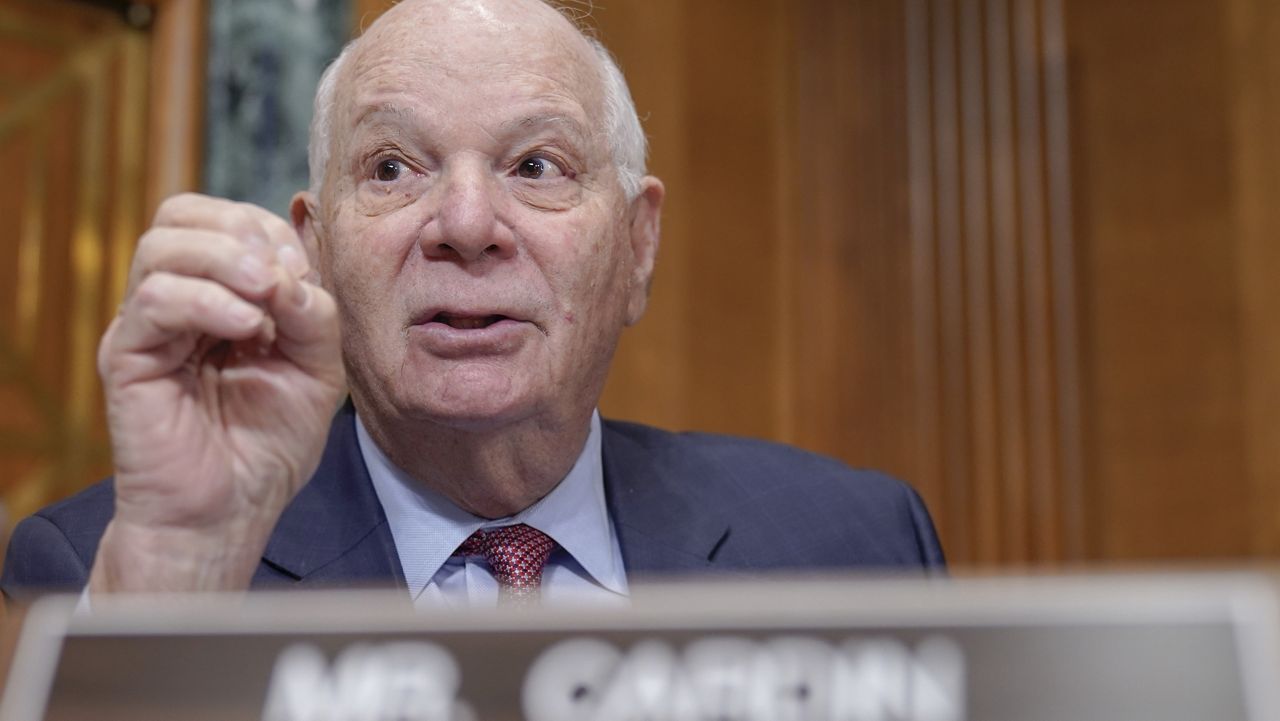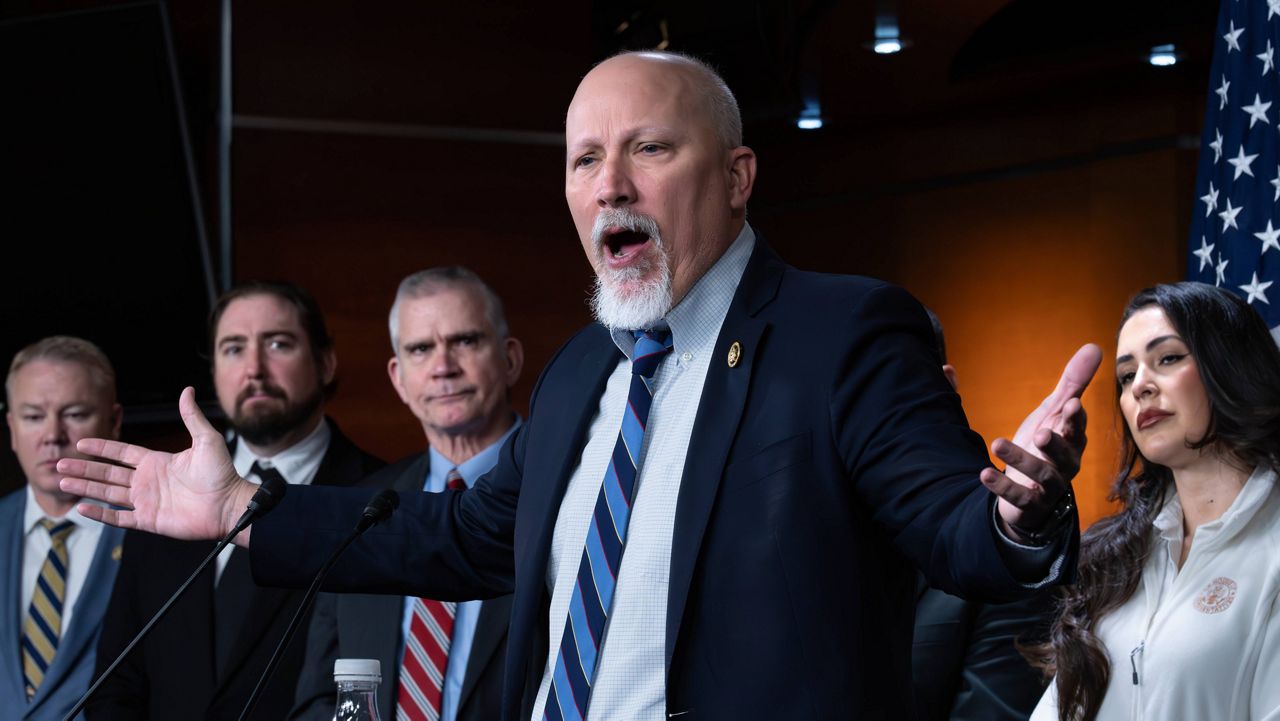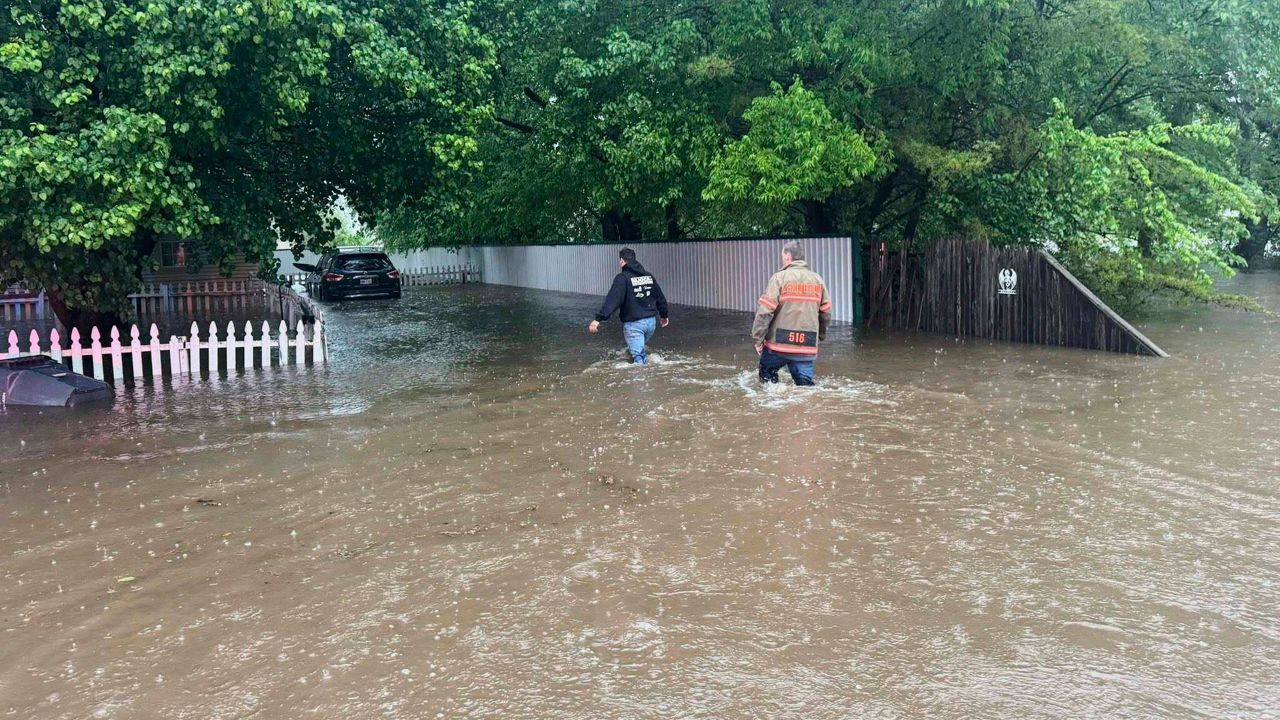Senate Foreign Relations Committee Chairman Ben Cardin, D-Md., said Thursday he believes President Joe Biden should come to Congress for a new authorization for military action.
Cardin's comments add to growing questions from lawmakers about the president’s authority to continue to order airstrikes in the Middle East without Congress’ involvement.
“Do I think the administration should come to Congress with authorizations? The answer is yes,” Cardin told reporters on Thursday. “I think they should recognize that the 2001 authorization is not covered with the types of military operations that we are engaged in today.”
As attacks on shipping in the Red Sea, as well as on U.S. troops in Iraq and Syria, have escalated since the start of the Israel-Hamas war, Biden this month took the significant step of ordering strikes targeting the Houthi rebels in Yemen and other Iranian-backed militant groups.
In separate letters notifying Congress of the moves, the president cited his powers as commander in chief to act in self-defense as well as the authorization for use of military force, or AUMF, approved by Congress following the Sept. 11, 2001, terror attacks as grounds for his ability to do so.
In the wake of the first strikes on the Houthis on Jan. 11, National Security Council Coordinator for Strategic Communications John Kirby insisted the White House was “comfortable and confident” in its authority to carry out the attacks.
“They’re wrong,” Biden himself declared when asked about criticism on Capitol Hill that had already started to emerge less than 24 hours after the strikes regarding the president’s decision not to seek congressional approval.
Since then, the questions and concerns have grown as Biden has continued to order attacks in the Middle East amid fears of an escalating conflict in the region.
“Now we’re engaged in campaigns that you could argue, well they restart every time there is a new action, but it seems to me this is a more permanent challenge that we have and it goes beyond the 60 days,” Cardin said.
The War Powers Resolution passed by Congress in 1973 requires hostilities carried out without Congress declaring a war must end within 60 days after the president notifies lawmakers of the action.
While Cardin said he doesn’t disagree with the president citing the self-defense powers, the question comes down to whether the United States’ response to continued attacks by Houthis in the Red Sea is considered “the same campaign” and will continue beyond 60 days.
“Sixty days moves quickly and I don’t think anyone envisions that the Red Sea is going to be safe in 60 days,” he said.
Earlier this month, during an exchange with reporters, Biden acknowledged that the U.S. attacks on Houthi targets were not stopping the Iranian-backed group’s attacks on shipping but pledged they would continue nonetheless.
“When you say working, are they stopping the Houthis? No,” Biden said. “Are they going to continue? Yes.”
Cardin added that the back-and-forth between the executive and legislative branches over such issues has spanned many administrations and he sees “no willingness” from anyone in the executive branch to come around on this.
The comments from the head of the committee Biden himself once chaired follows mounting calls from lawmakers on both sides of the aisle for the president to seek congressional approval for further action in the region.
Last week, a bipartisan group of senators, including two Democrats on the Senate Foreign Relations Committee, sent Biden a letter seeking answers about his authority to continue ordering attacks without Congress weighing in.
“The Administration has stated that the strikes on Houthi targets to date have not and will not deter the Houthi attacks, suggesting that we are in the midst of an ongoing regional conflict that carries the risk of escalation,” the senators, which included Sens. Tim Kaine, D-Va., Chris Murphy, D-Conn., Todd Young, R-Ind., and Mike Lee, R-Utah, wrote.
“We have long advocated for deliberate congressional processes in and authorizations for decisions that put servicemembers into harm’s way overseas,” the letter continued. “There is no current congressional authorization for offensive U.S. military action against the Houthis.”
Days later, a bipartisan group of nearly 30 House members penned a letter to the president urging him to seek authorization from Congress in order to carry out more attacks.
“No President, regardless of political party, has the constitutional authority to bypass Congress on matters of war,” the lawmakers wrote.
It all comes as the Biden administration is preparing to respond to a drone attack in Jordan over the weekend that killed three U.S. service members. The U.S. has determined it was carried out by “an umbrella group called the Islamic Resistance in Iraq.”
The president has vowed to respond and told reporters on Tuesday that he has decided how he is going to do so. However, no action has been taken thus far.
Biden told reporters Iran is responsible for the attack because "they're supplying weapons to the people who did it."








